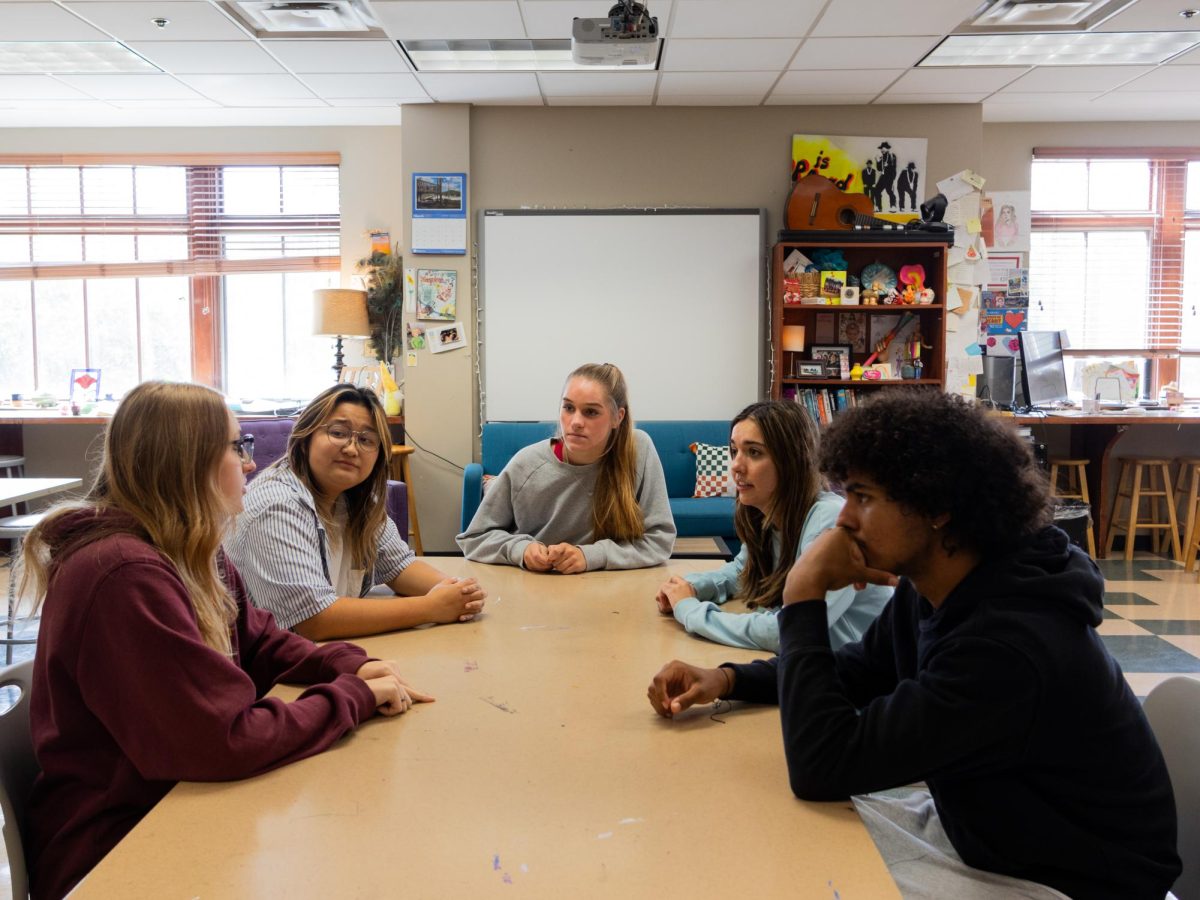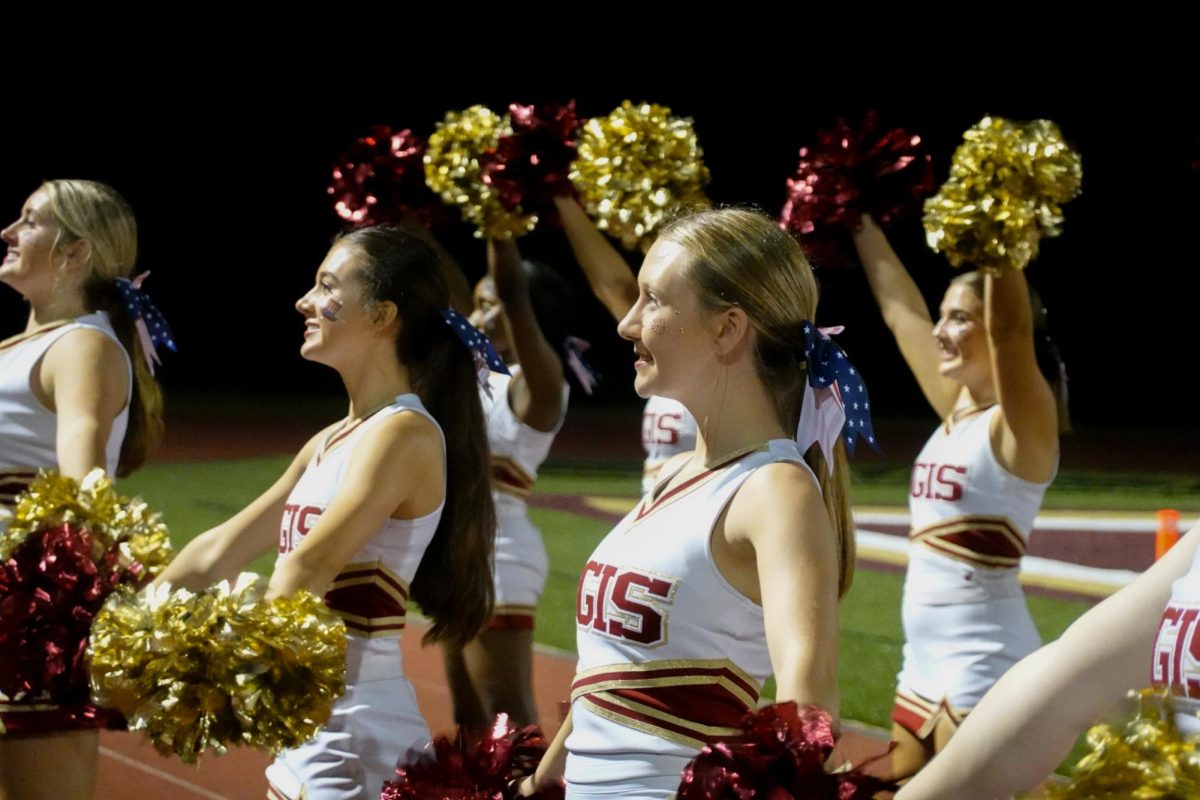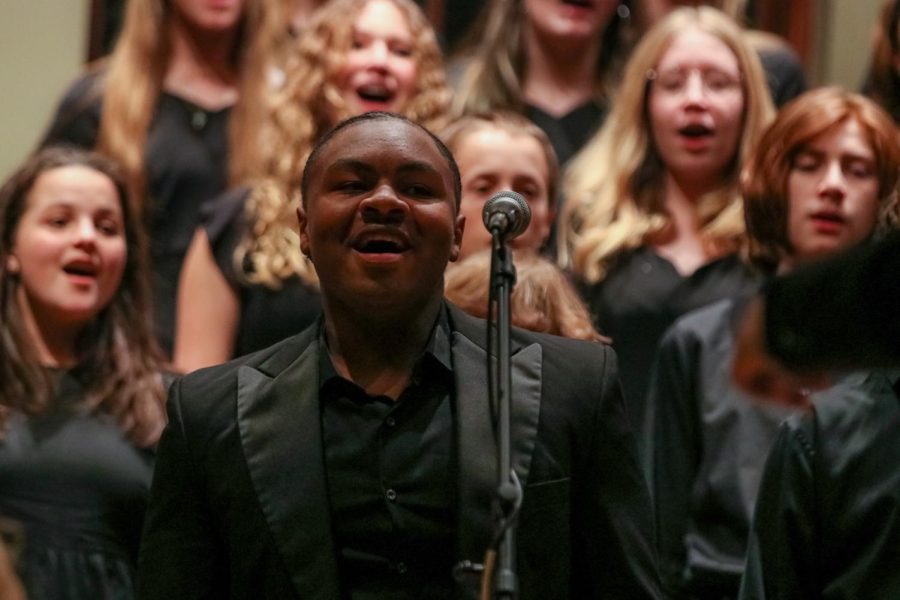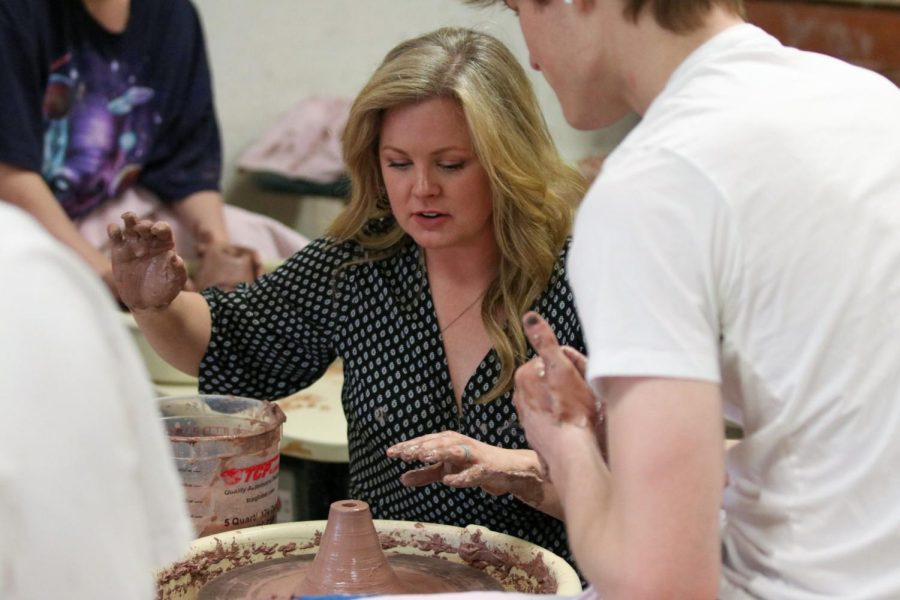The Grammys have always been my favorite of the major award shows each year, as music is such an important and powerful art form. I can’t help but root for the artists I adore like they’re my favorite football team; it’s the Music SuperBowl . The Grammys typically follow a similar pattern of events, but this Grammys stood out from the rest. This year’s Grammy was made unique by two major elements: campy performances, outfits, and “drama,” and well-handled conversations about incredibly important issues. I’ve organized my favorite (and least favorite) moments from the night into a numbered, chronological list.
1. Trevor Noah: A surprisingly strong host
I don’t know about you, but I’ve never actually laughed at a Trevor Noah joke. I have nothing against him, rather I simply find him unfunny. For the past five years, I have questioned why Noah has been asked to return as host; there always seems to be an awkward air around his monologue that clogs the atmosphere.
Surprisingly, this year was different.
The night was full of references to the California fires, in fundraising and in song. It is not uncharacteristic of award shows to raise awareness about a pressing issue, and it isn’t hard to imagine that celebrating success during a time of great loss to the California community would be difficult. The tone of the moments between awards and performances were more solemn and reverent than ever before, which worked in Noah’s favor. Noah became the continued reminder for this tragedy, prompting celebrities and viewers to donate every chance he had. His encouragement seemed to work too, as, according to BBC, the event raised over $7 million dollars in fire aid.
The room was not in the mood for jokes, so he simply made fewer jokes, and I was far from offended by this choice. The choice to put this crisis at the forefront of the night amplified the impact of the beautifully eccentric choices made by artists. It felt as though the music community is returning to more authentic displays of artistry,pursuing their true passion , not just what is most digestible for the uninformed viewer. For the informed viewer, like myself, it was a masterpiece.
2. Women Stole the Show
In recent years, there has been an uphill trend of women artists winning awards at the Grammys compared to past years. Certainly, women have always had their place at the ceremony, however there have been stand out years where women seemed to be underrepresented. In 2018, women only won 17 of the 86 possible awards. This year was the opposite.
The Power Puff Pop girlies, Chapelle Roan, Charli XCX, and Sabrina Carpenter, each had successful nights and breathtaking performances.
Sabrina Carpenter’s nod to old Hollywood with her Marilyn Monroe-style routine was miraculous, as fans and unassuming viewers alike could find something to enjoy. Her use of comedy was astounding, especially when paired with clearly exhaustive choreography and stunning costuming. I felt as though I was watching Carpenter’s vision come to life, and I was living for it.
Similarly, Chappell Roan’s adorably campy western-style rendition of “Pink Pony Club” felt like a fever-dream that I was blessed to be having. As a massive fan of Roan and a closeted member of the My Little Pony fandom, I could not help but watch in awe as she danced atop a massive pink pony with a heart-shaped cutie mark on its back.
When Roan accepted the award for Best New Artist, I knew that her acceptance speech was going to be far from typical. Adorning a fairy-tale style princess hat on her head, she read from a journal and demanded that record labels provide for the basic needs of their artists. She ended the speech with a powerful line: “Record labels, we got you. But do you got us?” Roan shone a light on an issue of which the average viewer like myself was unaware, demonstrating once more that she refuses to abandon the most sincere aspects of her character.
Charli XCX’s performance brought brat to the stage, and as someone who dreams of seeing XCX live one day, I was amazed. Her performance of Guess was beyond eccentric, as various undergarments dropped from the ceiling and fell onto the ensemble of party-goers on stage. The power of this performance does not end with its visuals, however; all of the unworn undergarments used for the performance were to be donated to survivors of domestic abuse through the organization SUPPORT THE GIRLS.
XCX demonstrated the power of her creativity in this moment. Additionally, when XCX walked out with none other than Alex Consani, I’m certain my house shook from my screams of excitement. Consani is the first and only trans-woman to win model of the year, and she is known for her defiance of the standard for model’s to tailor a personal brand. She holds strong in her authentic portrayal of herself, and her presence reminded me again of the lingering motif of authenticity throughout the night.
The winner of the award for Best Rap Album, Doechii, had my favorite performance of the night, and I hope it will be remembered as one of the greatest in Grammy history. The costuming, the choreography, and the jazz-inspired background music at the end of the song came together to create a captivating piece of art. Doechii is such a unique artist, and seeing her success in a genre dominated by men held such gravity, which was only amplified by her speech. Doechii’s presence at this year’s Grammys is one that will not be forgotten
Beyoncé had a particularly controversial night, though I cannot understand why. Cowboy Carter is an incredible, genre-defying album that encompasses both a personal reflection and a discussion of larger societal issues. I have heard many complaints that it is “not real country,” but what does this truly mean? What is country? Isn’t the genre foundationally the music of the people? Beyoncé also found herself in the realm of campiness when she was presented with the award for Best Country Album by none other than Taylor Swift herself, who won the very same award 15 years earlier. This exchange marked the end of the fan-created rivalry between the two women over success in their field. Additionally, those who claim that Beyoncé is not “real country” because she began her career making pop music seem to disregard the fact that Swift herself did the inverse of this genre switch.
I have heard equal discontent with her win for Album of the Year, unaccompanied by any strong arguments for what should have won instead. Whatever you think about what constitutes music as “real country” or deserving of Album of the Year, it was certainly a well-deserved and long-awaited win.
3. Tribute to Quincy Jones: 80s Fever
The tribute to Quincy Jones, which featured several famous actors and singers, was the quintessential 80s flashback. With Herbie Hancock on the keys, the crossover between Cynthia Erivo and Stevie Wonder was something I never knew I needed. On the screens behind Wonder, the famous “We Are the World” music video played, which has some serious implications in the modern and increasingly divisive world. Following Wonder was a fantastic tribute to Michael Jackson performed by Jenelle Monet, glitter shoes and microphone and all.
What felt most powerful about this 80s-themed section of the night was the representation across the board. This moment evoked imagery from a time when the straight white male was even more dominant than he is now, and seeing openly gay artists and minorities coming together in celebration was invigorating and much needed.
4. Not Like Us
Rapper Kendrick Lamar swept his categories, winning Best Record and Song of the Year for Not Like Us. As an artist who has been famously snubbed in years past, this was a particularly significant win.
What stands out to me about the success of this song is that it proves one thing to be true: holding powerful individuals accountable does not wreck a career. Hearing a room full of celebrities sing “a minor!” all at once was comically powerful. This message is one that I hope will ring true to other members of the industry, though a later point in my list detracts from this desire. Regardless, during this win we heard once more from the theme of genuineness, demonstrating that, just maybe, there could be a major shift in celebrity culture.
5. Off-Screen Oddities: Chris Brown, A.I. Beatles and The Weeknd
While this year’s ceremony will go down as one of the most campy, powerful, and powerfully campy Grammys in history, there were two moments of the night that were particularly off-putting.
I was ecstatic when it was revealed that The Weeknd would be doing the surprise performance of the night, officially ending his boycott of the ceremony, which began in 2020. This boycott took place due to the apparent lack of diversity of its award winners. While I do think it is incredibly powerful to see all of the changes made by the Recording Academy to address these issues come to fruition with this performance, its introduction was rather hazy. The Head of the Recording Academy, Harvey Mason Jr., spoke on the academy’s past failures and explained the various initiatives that have been launched since The Weeknd announced his boycott. I am certainly glad that these initiatives are in place, but I would have much rather heard directly from The Weeknd himself about why he changed his mind than from others. Mason Jr.’s speech was eerily reminiscent of a YouTube apology video, in which the voices of those impacted by the apologist’s wrongdoings are not heard.
Chris Brown won Best R&B Album, which starkly contrasted the theme of Kendrick Lamar’s wins. These juxtaposed ideas placed a veil of uncertainty over my viewing experience, especially given the speech delivered by Mason Jr. I was already questioning the sincerity of Mason Jr.’s remarks, and this win directly emphasized this concern.
What furthered my worries was The Beatles’ nominations and wins for their song “Now and Then,” which used artificial intelligence to emulate the voices of their late members. The song won Best Rock Performance and was nominated for Record of the Year, and my only question is “why?” I cannot speak for those who were nominated for these categories, but this feels like a slap in the face to other artists and the art form in general. Artificial intelligence has no place within art, regardless of how “experimental” one’s art may be.








